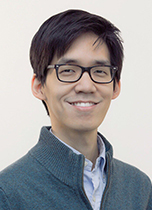
Minsuk Kahng and colleagues at Georgia Institute of Technology and Western Washington University were recognized by the prestigious journal, ACM Transactions on Interactive Intelligent Systems, for their research that impacts mobile health technologies.
“I’m honored that our paper has been nominated for the best paper. Our work addresses an important challenge of supporting analysis of large-scale mobile health data, by unifying scalable data mining and human-centric visualization techniques,” said Kahng, assistant professor of computer science in the College of Engineering.
The paper, titled Chronodes: Interactive Multifocus Exploration of Event Sequences received the Best Paper Award, Honorable Mention. The authors are Peter Polack, Shang-Tse Chen, Minsuk Kahng, Kaya De Barbaro, Rahul Basole, Moushumi Sharmin, and Duen Horng Chau. ACM TiiS is one of the prestigious journals at the intersection of AI and HCI (Human-Computer Interaction), and this award is given to top selected papers.

